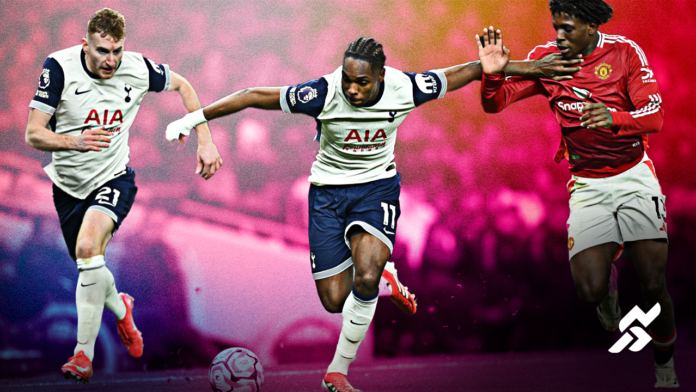Manchester United and Tottenham are set to face off in the Europa League final on Wednesday, with both clubs looking to redeem their disappointing domestic seasons. The match in Bilbao offers more than just a trophy; it presents a vital opportunity to secure a spot in next season’s Champions League, a prize as valuable as the cup itself.
Both clubs have struggled this season, with Manchester United sitting in 16th and Tottenham just one point behind in 17th place in the Premier League, with only one game left. Their poor performances have drawn harsh criticism, and only the underperformance of relegated clubs like Ipswich, Leicester, and Southampton has spared them from a desperate battle against relegation.
Missing out on European football could result in significant financial setbacks for the losing team. Former United captain Gary Neville warned that failing to secure a Champions League spot could affect the clubs’ investments for the next two to three years, leading to reduced spending and even more challenges in the future.
United’s financial situation is already under pressure, with co-owner Jim Ratcliffe implementing significant cuts, including 200 job redundancies after 250 positions were cut the previous year. Ratcliffe defended these measures, saying the club would have faced financial difficulties without them. United is also pushing for a new £2 billion stadium to help restore its fortunes.
Tottenham, under Ruben Amorim’s leadership, has failed to turn things around, with only six wins in 26 Premier League matches since he took charge in November. Amorim emphasized that securing a Champions League spot is more important than winning a trophy, as it would accelerate their progress to the top in the coming years.
Victory in the Europa League final could be worth around £70 million, which could help either club overcome its financial struggles. According to football finance expert Kieran Maguire, Champions League participation brings significant financial rewards, including gate receipts, sponsor bonuses, and prize money, potentially exceeding £100 million.
Tottenham chairman Daniel Levy has faced criticism for prioritizing financial stability over winning trophies, but Spurs still seek to end a 17-year silverware drought. Despite the club’s growing income from its state-of-the-art stadium and other ventures, Spurs have lost over £100 million in the past two seasons.
The Europa League final represents a crucial opportunity for both clubs to secure a return to the top of European football and avoid further financial difficulties.

